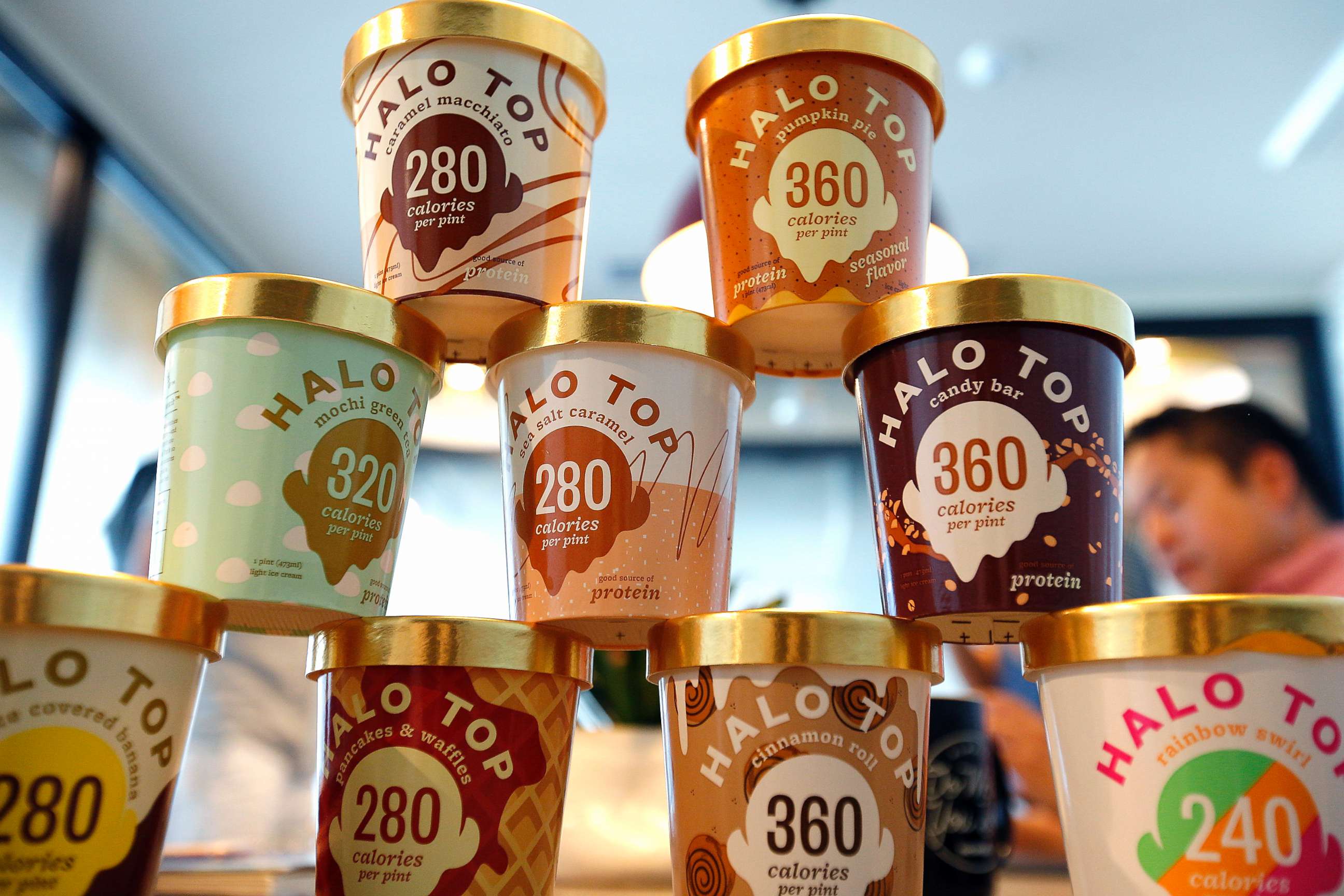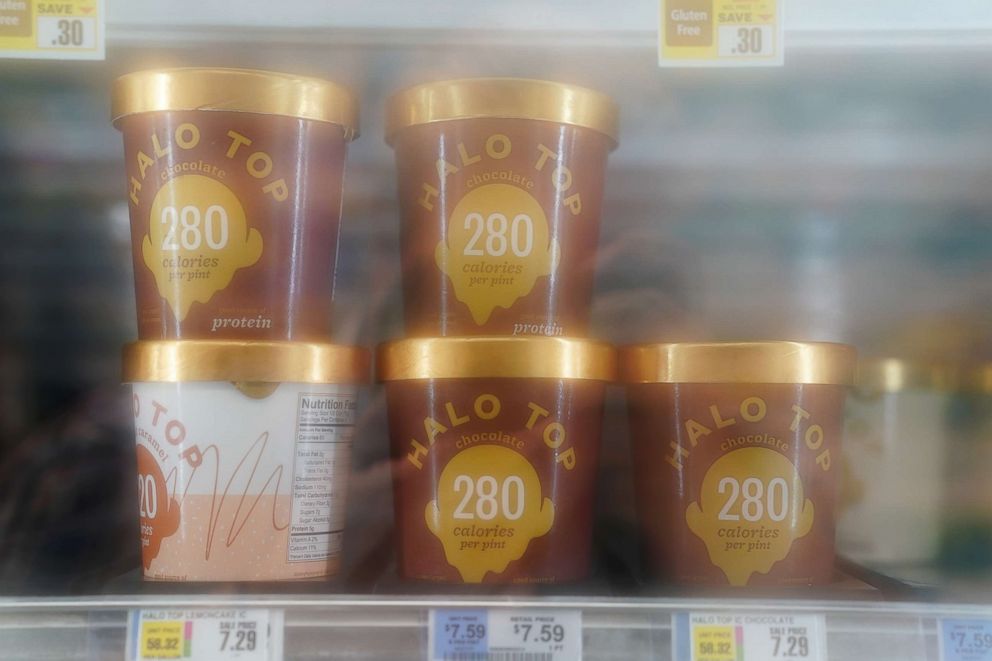Lawsuit charges Halo Top ice cream is cheating customers
A lawsuit charges Halo Top low-calorie ice cream is underfilling its pints.
It's marketed as a "guilt-free" pleasure, but a lawsuit charges Halo Top low-calorie ice cream is guilty of one thing: short-scooping customers.
Two people from California filed a federal class-action lawsuit charging that Halo Top underfills its pints "dramatically so at times."
"Purchasers of the premium-priced ice cream simply have no idea how much ice cream they will get each and every time they buy a Halo Top 'pint.' And Halo Top has been doing this for years," according to the lawsuit filed in U.S. District Court in San Diego.

The Los Angeles ice cream maker scoffed at the suit, saying its claims have no merit.
"We have never and would never 'underfill' our pints," Eden Creamery, which produces Halo Top, said in a statement to ABC News.
The statement went on to say, "Product settling can occur from time to time due to everything from heat fluctuations to altitude changes during shipping and handling."

Halo Top was launched in 2011 and quickly developed a cult-like following by touting its high protein, low sugar and low-calorie ingredients. A pint of Halo Top runs around $6.99
"As one of the important selling points to consumers, the number of calories per pint is prominently displayed on the pint container, generally 280 to 360 calories per pint," the lawsuit notes.
The suit charges that the producers of the ice cream "knows it is short-changing its customers, but refuses to do anything about it."
"And what constitutes a 'pint' is not up for debate," the suit says. "It is a standardized measurement of volume in the United State, and commonly understood as such by consumers."
The suit goes on to say, "But just as consumers expect to be paying the advertised price for a full gallon of gasoline, so too they expect to be paying the advertised price for a full pint of ice cream. But when purchasing a pint of Halo Top ice cream, consumers frequently do not get a full pint."
Gillian Neely of San Diego and Youssif Kamal of Los Angeles, the only plaintiffs named in the lawsuit, concede they are consumers of the Halo Top ice cream.
"Kamal intends to continue purchasing Halo Top ice cream pints in the future and wants to ensure every pint is a full pint," the lawsuit states.




